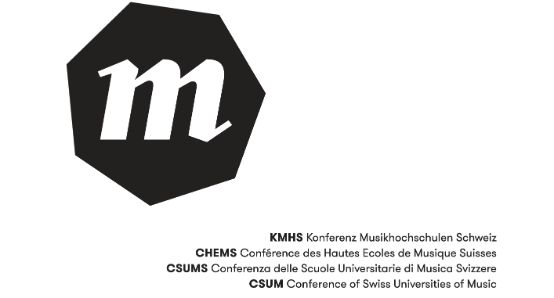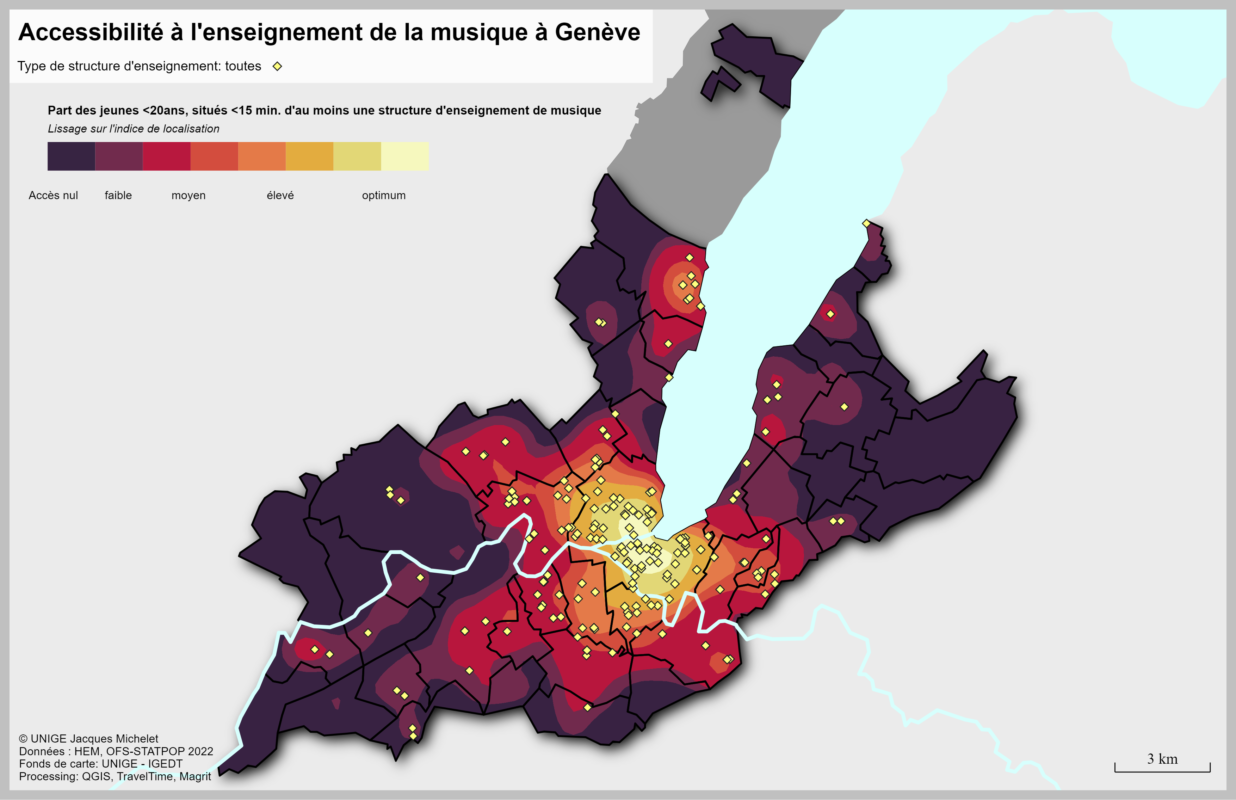Jazz composition: a new option

The three-part series on composition studies at Swiss music academies comes to a close with this article. Thomas Dobler (Coordinator of the Bachelor Jazz & Musiques Actuelles program) and Mátyás Szandai explain the jazz composition program at the HEMU Lausanne.
Matthias von Orelli - Mátyás Szandai has been a student at HEMU Lausanne (Master en Interprétation option performer composer) for two years. He gives a personal insight into his daily studies.
Mátyás Szandai, what is your current CV and how did you get to Switzerland and Lausanne?
I studied classical double bass at the Department of the Ferenc Liszt Academy of Music in Budapest and with Gergely Járdányi. Then classical composition with Jean-Michel Bardez at the Conservatoire Hector Berlioz de Paris, and jazz harmony with Emil Spanyi at the Conservatoire National Supérieur de Musique et de Danse de Paris. After living in Paris for almost ten years, I decided to continue my studies. I was happy to find the Master's course in Interpretation - option performer composer at the HEMU in Lausanne. It's exactly what I needed.
How important is jazz composition to you, your musical development and your career?
My experience is more as a performer. I think that practicing composition and arranging helps me to become a better improviser too. I've always composed for my bands, but that means staying in small groups, and I always miss training that helps me realize my musical ideas and puts them into practice at the same time. The jazz section at the HEMU has not only given me the opportunity to learn how to make arrangements for larger orchestras, but I also get to perform them, and record them (as part of project weeks). For example, this year we're playing a composition and arrangement of mine as part of the creation Oriental Tales for the Cully Jazz festival in April 2019, and at the end of the year I'll be playing my compositions with my ensemble for my exam-concert at the BCV Concert Hall in Lausanne.
What do you expect in principle from such studies?
My personal goal is to be able to write music for large ensembles, such as a chamber orchestra, a big band or a symphony orchestra.
What exactly is the study of jazz composition like at Lausanne, especially in comparison with other styles of composition?
I study with Emil Spànyi, who has a comprehensive knowledge and overview of music history and theory. I have lessons every week. At the beginning of the year, we draw up a work plan. The project week recording and the end-of-year concert set the deadlines and pace for the work. In my first year, I wanted to learn the techniques of arranging jazz standards in the style of Ellington or Gil Evans. Last year, for my end-of-year exam-concert, I performed my arrangements with my quintet. This year, I'd like to concentrate on my own compositions. I have a few compositions that I've written for my quartet, and I'd like to arrange them for an ensemble containing a flute, an oboe, a clarinet, two violins, a cello, a vibraphone and a rhythm section. First, we define the forms, the style, we take a few examples with the same instrumentation from the jazz or classical repertoire, then I try to come up with a few ideas of my own which we develop.
In my opinion, jazz writing and composition are unimaginable without the knowledge of classical music. For me, the differences in composition between classical music and jazz lie in improvisation, accentuation, rhythms and forms.
Thomas Dobler - Composition plays a prominent role in the Jazz program at the Haute École de Musique de Lausanne (HEMU). In 2016, during a revision of the jazz Master's orientations, the Master in Composition was integrated into the Master in Interpretation, the links between jazz composition and interpretation being imperative. In practice, composers are often also performers of their own music. At the same time, it is important for the performer to have skills in orchestration, arrangement and composition. The links between improvisation, considered the key element of jazz, and composition are obvious and indispensable. The Master's degree in composition in its former form has therefore disappeared, but it is now seeing the light of day in a new orientation: The Master's degree in Interpretation - performer-composer option.
This reform represents a significant enhancement of composition within the institution. It has succeeded in energizing the will to create, the crucial factor for lively music and jazz in motion. The Master in Interpretation - performer-composer option was immediately well received by students. Enrolments doubled in a very short space of time.
In addition to their main instrument, students are offered individual composition courses and various group courses in arranging and orchestration. What's more, this Master's program offers a high degree of individualization. In particular, there is the "specialization" branch, an individual elective course enabling students to focus on a specific field or reinforce a particular orientation (film and media music, electronic music, thematic composition, orchestration, performance, etc.).
The most important thing, however, is practice. It is inefficient and a pity if compositions remain exercises that end up in a drawer. On the contrary, it's vital that the student should be able to hear and consequently modify and rework his work. This is why the HEMU Jazz has set up a highly developed system involving numerous concerts with external partners. All students in the "Master in Interpretation - performer composer option" are required to write at least two compositions/orchestrations per year for HEMU Jazz ensemble projects.
These commissions involve constraints in terms of instrumentation and style, but above all precise deadlines. All processes are carefully supervised by the composition teachers and artistic directors of the various projects. The projects are conceived in a wide variety of styles, so as not to be constrained by restricted or dogmatic aesthetics.
The HEMU believes that it is essential to pass on "classical" values, and even general culture, in particular an excellent knowledge of the past, and a good command of composition and orchestration techniques, which represent the real working tools, with the conviction that creativity can develop through work. In addition to these composition/orchestration commissions, students compose for their personal projects, with which they perform in numerous concerts, including a public recital/concert in the HEMU concert hall at the end of each year. In the second year of the Master's program, their projects are recorded in the HEMU studio. The Master's thesis integrates these recordings, accompanied by the creation of a website including a press kit in several languages explaining the artistic approach.
The HEMU site du Flon (jazz and contemporary music departments) produces around 200 public concerts a year, in collaboration with numerous partner institutions such as the RTS (Espace JazzZ concerts), the Cully Jazz Festival, the Montreux Jazz Festival, the Onze Plus Festival in Lausanne, the Périgord Noir Festival in France, the Nova Jazz Festival in Yverdon, Jazzclub Chorus Lausanne, the Lancy - Cave Marignac concerts, Théâtre Vidy Lausanne, Label Suisse Jazz, and many others. Lausanne, the "Périgord Noir" festival in France, the "Nova jazz" festival in Yverdon, Jazzclub Chorus Lausanne, concerts de Lancy - Cave Marignac, Théâtre de Vidy Lausanne, Label Suisse, Le Bourg Lausanne, Output Festival Zurich, "City Club" Pully Pully, Esprit Sainf Lausanne and the music schools of Stuttgart, Linz, Graz, Lucerne, Bern, Zurich and Basel.
The creations
Many of these concerts feature student compositions and orchestrations. But the HEMU also commissions creations from its professors and external contributors (notably Nik Bärtsch, Michel Godard). The mix of "professional" and "student" composers is particularly interesting, as students can then observe how their professors face the same challenge as they do. A good example is the creation of "Oriental Tales" for the Cully Jazz Festival in April 2019. One hour of music, composed by four students and one teacher for a more than heterogeneous ensemble: four classical musicians, a jazz rhythm section, an oriental percussionist and two traditional musicians from Morocco.








